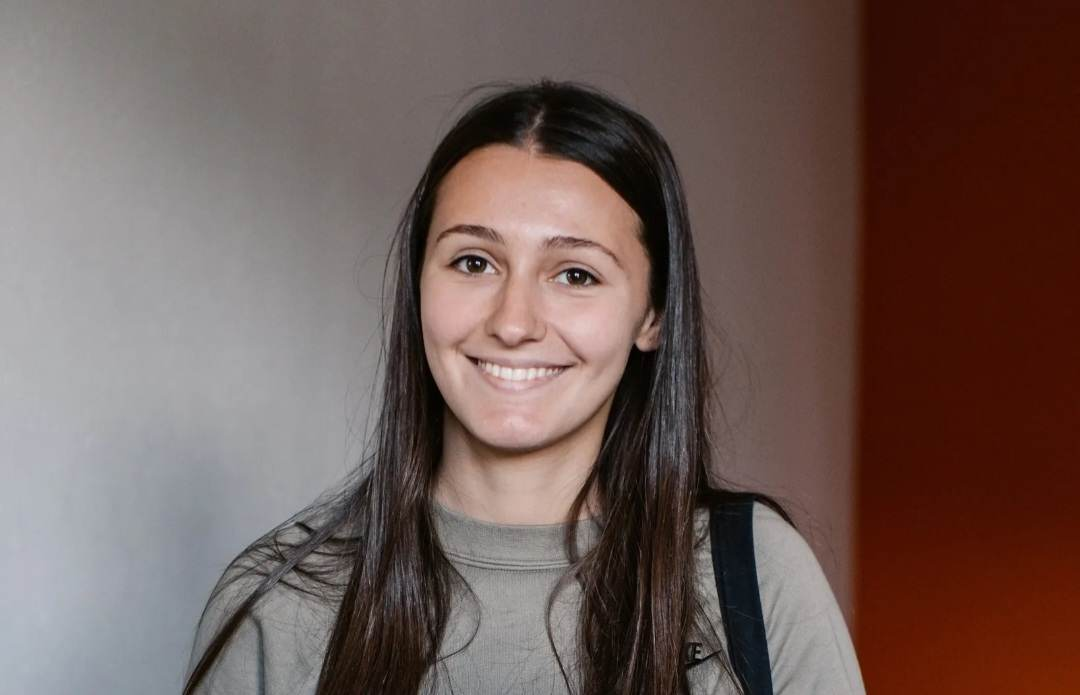In the words of Mrika Nikçi: “Even though he left me with trauma, I know I am strong enough to overcome it.”
Date:

Mrika Nikçi is a 20-year-old young woman from Kosovo1 currently studying Law at the University of Prishtina. She is the youngest woman in the world to climb the seven highest peaks in seven continents. Mrika had summited the world’s highest peaks together with her father before turning 18. A successful mountaineer, she founded an NGO, Mrika Seven Summits, to promote responsible and sustainable tourism and share her experiences with school students in Kosovo. On 27 September 2022, Mrika survived a sexual assault on the streets of her hometown. She published a video of the attack in the hopes of raising awareness that sexual assault is not a private matter and should be reported.
“On the 27th of September 2022, as I was walking right in the centre of my hometown in Peja, Kosovo, I was unexpectedly and insidiously sexually assaulted by a stranger.
I was attacked from behind, and at first, I was unaware of what was happening to me. I never thought I would ever be caught in such a situation. Refusing to believe the truth, I was trying to escape, and kept screaming: ‘Get off me!’
I resisted for a few moments and tried to run away. After that, I thought: OK, this is getting serious! So, I tried fighting back. The moment I managed to escape the attacker’s arms, I saw his face and burst out crying.
Right after this, two women passing by stopped to help me and the attacker ran away, screaming: ‘I am not finished with you yet.’
I had never crossed paths with my attacker before. I felt that my body was violated.
The very first thing I did after the assault was to call my father and tell him what happened. I told him everything. He urged me to immediately report the case to the police.
In the beginning, I felt anxious. I couldn’t take a step out of the house, and if I did, I always had to be with someone. For two weeks I couldn’t sleep because of anxiety. Even when I thought that I was falling asleep, I would feel that someone was attacking me.
Now, when I go out, I still feel paranoid and more alarmed than usual.
I decided to make my case public by publishing a video of the attack, because I know that cases like this happen every day and most victims suffer in silence. I honestly thought that it is the right thing to do, because perpetrators should be where they belong, and that’s not among all of us. Meanwhile, I thought that I could raise awareness that these cases should be reported, and the perpetrators of these crimes should be punished.
I have rewatched the video plenty of times. From the very first moment I saw it, I knew I would be publishing it. It was very important for me to make the video of the attack public, as I was convinced that I was doing something good. I didn’t think twice.
After the publication, I felt overwhelmed as I received so many reactions. A lot of young women and girls messaged me and thanked me for publishing this video.
One message that really had an impact on me came from a young woman who said: ‘Thank you for teaching us that it is not our fault. For letting us know that we should not stay silent in such cases, and that we should not feel ashamed!’
Every day, I think about the moment of facing him. Even though he left me with trauma, I know I am strong enough to overcome it.”
1 All references to Kosovo are in the context of United Nations Security Council resolution 1244 (1999).